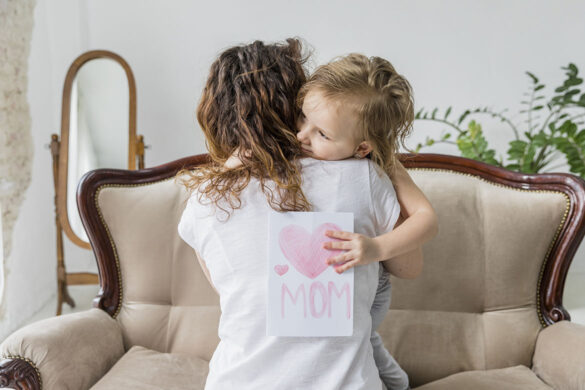by India Tarasin, central coast writer
When I was young, the ‘successful image’ of a woman were characters straight out of rom–coms. It was Elle Woods completing a law degree with a bobble pen and winning her first court case. Quick–witted Andie Anderson pursued a career in political journalism from the desk of a cult women’s magazine, and Jenna Rink sought to transform her life as ‘a big time magazine editor’ with a penthouse in Manhattan.
They weren’t Emmeline Pankhurst or Betty Friedan, (although they would come later), but these women were the epitome of success and power to a 13–year–old girl in the mid–noughties. They were driven, career–focused, sharp, witty, and very, very beautiful. They had left the 20th century behind and all of the restrictions based on their sex. Granted, these women were characters, but for millennial girls, they were the delivered image of female heroism.
Now as a 31–year–old working mum with two children under four, I can’t help but feel that I’m missing the sparkly life that I saw other women leading. When I glance at myself in the mirror, I am shocked to see the person looking back at me. Her eyes are dull, she has sunken grey eyebags and her hair is thin. It didn’t used to be thin? And wasn’t she in her late twenties like, last week? The wardrobe is mostly a collection of polyester–blend, and there are stains and marks on almost every item of clothing. In fact, she doesn’t even bother to buy anything nice for herself anymore, because, what’s the point?
She’s not alone, either. In fact, in the last three weeks there have been over 10 requests for help posted in local mum’s’ Facebook group. Some are bravely sharing their feelings of isolation, loneliness, and financial hardship in this increasingly expensive time to be alive. Nappies, groceries, help towards bills are all common weekly requests. These women are all proud mums, so much so that they post anonymously so no–one can identify them.
We do all the right things and take all the right steps to reach what we’ve been told is happiness; study, work, marry, buy a home, create a family. But when I speak to my cohort of brilliant, passionate, intelligent, kind, driven mothers, not one of us can say that we are feeling successful. In fact, we are drowning. Why is that?
While more women than ever are joining and staying in the workforce, 62.4% of us, to be exact, it doesn’t necessarily mean we are working harder and longer for the sense of autonomy. We’re in a cost–of–living crisis, with over 40% of Australian households struggling to pay for essentials. In 2024, 73% of families were dual–income, a 5.8% jump from 2019. The average working mothers I speak to aren’t feeling burnt out just because they are working, it’s because they simply can’t afford not to.
Laura is in her early thirties and has been a frontline emergency services worker for 12 years. She is a local mum who has always been driven and career–oriented, however, no amount of experience could prepare her for what would be her biggest job yet.
“I didn’t have a perception of motherhood before having kids,” she says, “but I didn’t think it would be this hard. I’m just trying to survive.”
While women have been having babies since the beginning of time, the somewhat new ability to ‘have it all’, of maintaining a career and raising children is both empowering but quite frankly, exhausting.
“The majority of the time I feel like I’m just going through the motions and stuck on the hamster wheel,” Laura says. “I have ambitions to move into other roles within my field, but I just don’t have the time or energy to study again. I need to work to keep a regular income, but it starts and ends there.”
Does this affect the desire and ability to grow a family? Is that what we want anymore? Birth rates have been steadily declining since 2008 with a current ratio of 1.5 per woman.
“I feel incredibly torn about having another child,” Laura says. “While I have always imagined having multiple children, I feel that if I had another child now, it would impact so much of my life.”
While Laura is open about her struggles, it wasn’t always the case.
“I didn’t have many mum–friends before, so I didn’t know if what I felt was normal,” she says.
But since speaking with other mums, she has found a whole new power bank that drives her.
“Working mums, single mums, basically any and every mum – they’re my idols,” she says. “They’re my secret weapon.”
And she’s right. The mum handing you that extra wet wipe, the coffee date when you haven’t left the house all week, the glass of wine on a teary day, the funny meme, the best hugs that refuel you after a gruelling night. That’s what motherhood is about.
India is a writer with nearly 10 years of experience in digital and print publishing. She has written across lifestyle, TV, entertainment, design, e–commerce and most recently, food. India has two young children and lives on the Central Coast.

